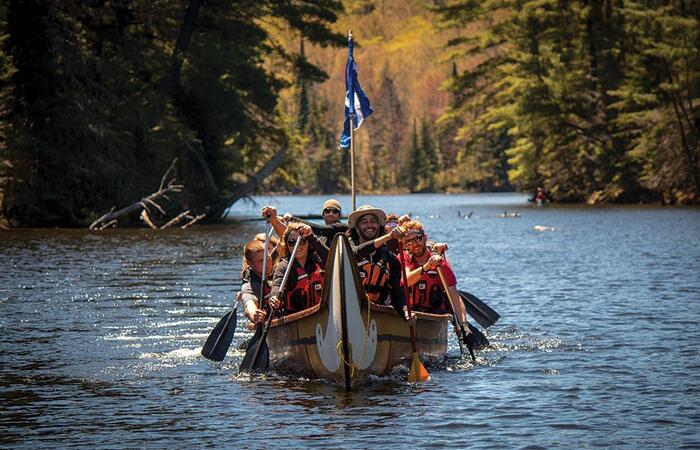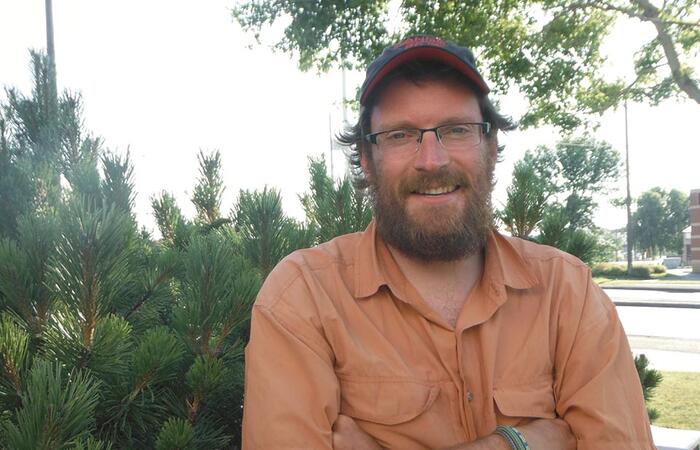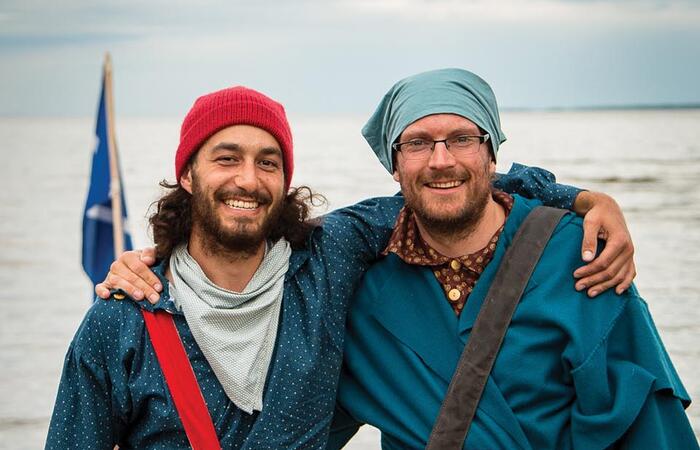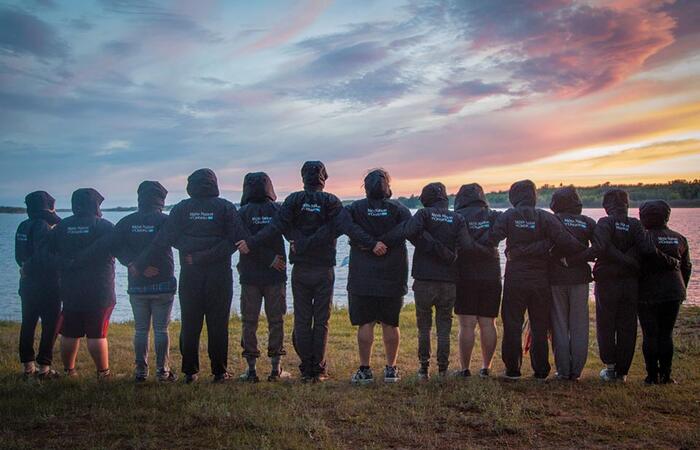Zack Kruzins sports three rope-like bracelets on his wrist, each representing a canoe trip he has taken in the past couple years. He points to the first thin blue one.
“This is from my expedition in the Bay of Fundy with Outward Bound Canada. And this one,” he says fingering the thickest of the three, “is from this expedition. We used a long piece of rope during a values lesson with our group to show how one person’s actions can affect others. You know, if you pull one part of the rope, the rest of the rope is altered. After our lesson, we cut the rope up and made bracelets out of it. Everyone in our group has one.”
“And this colourful one is from the other leader on the expedition. It represents our leadership during this trip.”
The trip Zack is referring to is the Métis Nation of Ontario Canoe Expedition 2017, an initiative funded by the Métis Nation of Ontario, Canada 150, and Ontario 150 through the Ministry of Tourism, Culture and Sport and the Ministry of Indigenous Relations and Reconciliation to raise awareness of the Métis way of life and culture. Starting in the spring of this year, this group of eight paddlers set off from Ottawa in a 34 ½ foot long Montreal canoe, leaving 2200 kms of rivers, lakes, Great Lake waters, and portages behind them as they set out to reach their final destination in 100 days: Lake of the Woods, Kenora.
Following the fur trade route of their Métis ancestors these youths, ranging from 18 to 25 years, are not only learning outdoor and leadership skills but they are also learning about their heritage so they can pass on their knowledge to others.
“The trip is physically exhausting at times, but it’s more mentally tiring than anything,” Zack admits. “The group is learning about perseverance and resilience and basically learning about who they are. There’s a lot of quiet time during our paddling that allows for reflection.”
Some of the youth have come out of their shells and are speaking up more when it comes to making decisions along the trip. Some are taking on more initiative and responsibility and maturing as the kilometres are left behind them. But the biggest development in the group, Zack admits, is their strength to show compassion. “The whole group clicks well. Although there is the odd sort of fight they have a strong bond and are learning of what is required by everyone to make the trip successful.”
The youth will gain two Confederation College credits for mastering outdoor skills involved in navigation, paddling, ropes, and flint and steel. But, as Zack points out, the main emphasis is not on skills development as much as it is social development. The youth are required to keep a journal of their trip and submit it every two weeks; a part of the program that allows the chance for reflection and self-realization.
“It’s hard for the youth to leave the city behind them,” Zack admits. “They like to be on their phones and listening to music. It’s been challenging to encourage them to put away the devices and just spend time taking in the beauty of their surroundings and thinking.”
There was one moment, Zack recalls, that showed the forces of nature were making a good impression on the youth. It happened one early morning on Lake Superior when the fog was beginning to lift and one of the youth remarked: “This is incredibly beautiful right now,” and all of the group agreed.
Although Zack finds the mental growth of the group challenging at times he admits he’s learned some things himself. “You have to realize that things are always changing. Although the mood in the group may be down, it’s just like the fog on the lake. It can lift and the day can be sunny.” He’s also learned that it’s not good to sweat the small stuff and good communication skills are a great asset.
When the youth near their final destination they’ll meet with a new group of First Nations, Inuit, and Métis youth in Rainy River, and student will become teacher as they pass on their learning. It will, in a way, come full circle.
But it won’t end there. Much of the reflection on a trip like this occurs after the paddles are put away and the youth head back to school. That’s when these skills will be put to use. Youth who were once too shy to speak up will realize they have the courage and skills to lead and guide a group, whether it’s during a class project or a team sport.
“Overall, it’s a cool thing,” Zack says. “Everyone is learning how to function well. It just took us awhile to learn how to get there.”
Full circle. Students became teachers, teacher became student. It’s amazing what the outdoors can teach us.
For more information about the Métis Nation of Ontario Canoe Expedition 2017 go to: http://www.métisnation.org/news-media/news/mno-canoe-expedition-starting-2200-km-canoe-trek-in-ottawa/









